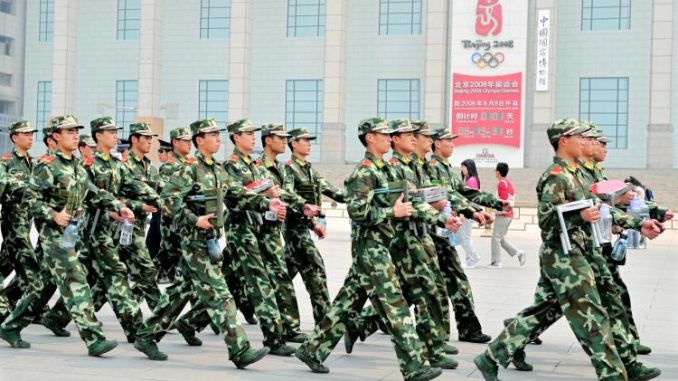
Noted China expert Roger Garside stated on Monday that the Communist regime of China is “outwardly strong, but inwardly weak” during a discussion on the potential for regime change and democracy in China hosted by the Hoover Institution at Stanford University.
Garside, a British former diplomat who was stationed in China, as well as the author of “China Coup: The Great Leap to Freedom” and “Coming Alive: China After Mao,” called the Chinese Communist Party (CCP) “fearful,” and stated, “The regime which rules China today is totalitarian, not authoritarian.”
He said that while the CCP works to project a strong image, it has a number of foundational weaknesses that are endemic to a totalitarian regime.
“The prevailing view is that this regime is strong and stable and will rule China for the foreseeable future. But I contend that this regime is outwardly strong and inwardly weak. This supposedly all-powerful regime is actually powerless to resolve a whole array of deep-seated problems that plagued China for years, indeed decades. Why? Because these problems are actually the product of the totalitarian system.”
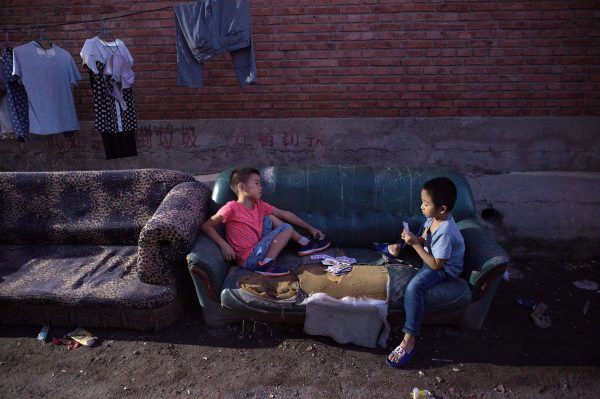
Among the problems cited by Garside is China’s economy and its burgeoning mountain of debt. Economic growth has long been seen as essential to the maintenance of basic social stability in CCP-ruled China, where citizens are not granted fundamental human rights, including freedom of speech, press, and religion.
“First, the economy, which has recorded spectacular growth, is now itself beset by serious problems. The transition to the market economy, which liberated the energy of the Chinese people was stopped in its tracks in 2008 by the Communist Party. The commanding heights of the economy, including banking, utilities, and transport were kept in the state sector. Why? Not for economic reasons, but for political ones. The Party feared that to allow private companies to occupy the commanding heights in the economy would destroy its political monopoly,” Garside stated.
“To compensate for the inefficiency which has resulted from stopping the transition, the state has been pumping vast amounts of credit into the economy to maintain an artificially high growth rate, because it fears the unemployment and corporate defaults which would result from lower growth. The result is a debt mountain. No nation with a debt mountain as high as China’s has ever reduced it without either recession or prolonged inflation.”
Orville Schell, Arthur Ross Director of the Center on U.S.-China Relations at Asia Society, said that the economy would likely be the central determining factor for a future regime change in China.
“I would say, I think if there’s going to be a change in China, it must come from within China. And if I had to say how will it come, it will probably have something to do with the economy,” Schell stated. “All economies are cyclical, and when China hits a bad cycle, that’s when it will be tested, as we were tested in 2008, as we were tested just recently. And we’ll see how that goes.”
In addition to citing policies intended to maintain economic growth that have allowed severe degradation of China’s natural resources and environment, as well as a “moral crisis” stemming from corruption within the CCP, Garside said that the CCP fears several factors—including truth, desire for democracy, and religion within China—as evidence of structural weakness, and asserted that the Chinese people live “in a condition of political slavery.”
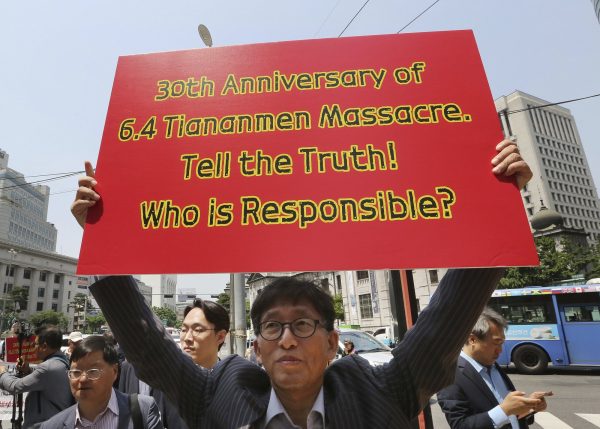
“This supposedly mighty regime is fearful. It fears truth. The [Chinese Communist] Party has always hidden the truth about events of immense importance in the history of its 70-year rule. It fears democracy. It has suppressed freedom in Hong Kong because of its fear that the attachment to democracy and the rule of law of just 7.5 million Hongkongers would infect the 1.4 billion inhabitants of the mainland, whom it keeps in a condition of political slavery,” Garside stated.
“It fears religion. It’s alarmed by the explosive growth of all major religions in China since 1979. Alarmed that so many men and women should regard God, rather than the [Chinese Communist] Party, as the supreme authority in the universe. So, it’s persecuting religion to a degree not seen since the death of Mao. Its strategy of cultural genocide in Xinjiang and Tibet are the most extreme manifestations of this.”
Teng Biao, an academic lawyer and human rights activist who was formerly a lecturer at China University of Political Science and Law, said that the CCP is afraid of what he called a “blood debt,” resulting from injustices endured by the Chinese people since the CCP’s rise to power in China in 1949.
“One thing many people have ignored is the Communist Party’s ‘blood debt.’ Since 1949, the Chinese Communist Party has committed extremely cruel anti-humanitarian crimes, like, here’s a list: from the killing of landowners, Cultural Revolution, Tiananmen Massacre, to the ongoing Uyghur genocide,” Teng said. “The top leaders really are afraid of the retaliation from the people, and they don’t believe that the Chinese people will forgive their ‘blood debt.’”
The result of the CCP’s fear and its denial of human rights and freedoms to the Chinese people, Garside continued, is a lack of trust between the CCP and the Chinese people.
“All these factors have combined to create a lack of trust between the people and the regime which rules them. Since 2011, the budget for internal security has exceeded that for the military. The regime fears internal dissent more than it fears its foreign enemies,” Garside said.
“But the lack of trust is not only an internal problem. It also poisons China’s international relations. Abroad, as at home, distrust has been dramatically intensified by the cover-up of the origins of COVID-19. This is part of a wider alienation of the U.S. and its allies. Countries which once engaged with China in benign partnership have now become hostile. Trust will not be restored until there is a change of political regime in China.”


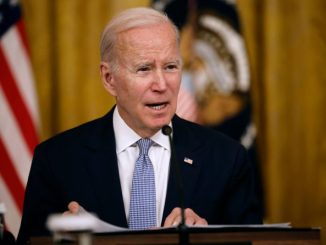
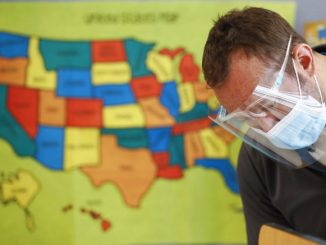

Be the first to comment